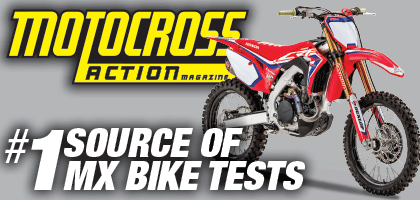BEST OF JODY’S BOX: “TO FIND HAPPINESS AS A RACER, YOU NEED TO REMEMBER WHY YOU DID IT IN THE FIRST PLACE”
By Jody Weisel
See the little kid at the top of this page? You should envy him. He has the world by the tail. He’s not even 2 years old, and his mom isn’t going to make him get a haircut until he’s 4. He’s wearing very fashion-forward plaid coveralls, and, based on those arms, he’s been pumping iron in his crib. His father is a dashing Air Force pilot with a chest full of medals, and his mom dotes on him like he is a prince. You should envy him. I know I do, because he’s me.
I envy his innocence, his uncluttered mind, and his total lack of prejudice, pride or avarice. He is blessed with what philosopher John Locke called “tabula rasa,” in that his mind is a blank slate without rules for processing information beyond his own sensory experiences. He doesn’t want to grow up to be a tinker, tailor, soldier, sailor, rich man, poor man, beggar man, thief, doctor, lawyer or Indian chief, because he doesn’t know what they are. He is free to be the author of his own destiny.
As a kid, I grew up wanting to be like my father. My dad used to put me on the gas tank of his 1950 Indian Chief, the one with the Indian headdress light on the front fender, and go roaring down the back roads of our small town. He would take me out on the runway of his Strategic Air Command base and let me sit in the cockpit of his Boeing KC-97 Stratotanker. All of that had a big impact on a 5-year-old.
Obviously, it was more than enough of a sensory experience to shape my life. When I got older, my dad bought me a used, stamped-frame Puch 125. I stripped it down to ride in the fields around my house. When it blew up, I bought a used Sachs 125MX for $300. That may seem cheap, but it sold brand new for around $600. That was the first bike I raced. I sold it for $300 a year later to buy the bike that every kid in America wanted at the time—a Hodaka Ace 100. Its retail price was $425. It was ultra-reliable, easy to work on and not too scary for a rank Novice to race.
WHEN YOU ARE TRYING TO MAKE A NAME FOR YOURSELF IN RACING, THE SPORT IS A MINEFIELD OF GLAD-HANDERS,
HANGERS-ON AND SNAKE-OIL SALESMEN.
Hodaka played an important role in my life as a motorcycle racer. During the motorcycle boom of the 1960s and early 1970s, Hodaka was the gateway brand for everyone from Brad Lackey to Jim Pomeroy to Gary Bailey to Mark Blackwell to Chuck Sun to Tommy Croft. Although I added an Ossa and CZ to my repertoire, I stuck with Hodaka through the Super Rat, Combat Wombat, Super Combat and even the Thunderdog days. These simple little machines fueled the dreams of thousands of young kids who wanted to ride dirt bikes.
Over time, I became a better rider. Hodaka’s Marvin Foster and the Bradshaw family from Big R Cycles were good to me. They smoothed my growth from wannabe to media darling on the cover of Cycle News. Racing motorcycles is a lot like being 2-year-old Jody—I had to learn to walk before I could run. When you are trying to make a name for yourself in racing, the sport is a minefield of glad-handers, hangers-on and snake-oil salesmen. I turned down offers to ride what turned out to be much better motorcycles in order to be true to the ones who brought me to the dance. I think it is an anomaly that I found my life’s calling on a Super Rat. A smarter man would have taken the better offers and never looked back, but I wasn’t smart. And as a peach-fuzz-faced kid on a Super Rat, I didn’t have ambitions to be on a first-name basis with my heroes, travel the world, become a motorcycle test rider or work for a motocross magazine. I just loved riding.
What I learned about finding happiness as a motorcycle racer may have started when I was hanging on for dear life to the tank of my dad’s Indian Chief, it had nothing to do with becoming famous, getting faster, winning trophies, setting land-speed records, being CMC number-one Vet Pro, getting lifetime achievement honors and making oodles of money. Those things are all nice in their own way, but they can’t hold a candle to when I was slower than dirt. In my naïveté, I rode with wild abandon. I loved the leather pants, smell of pre-mix, unmuffled sound from stingers, the noise my Jofa made when it slapped against the side of my helmet and the freedom from teenage angst. I didn’t care whether I was fast or slow. I just wanted to ride. Years later, this was distilled down into the simple, although perplexing, mantra that states, “You are never as fast as when you are slow.”
Finding happiness as a racer is a long and arduous task that begins with not ignoring the reason you did it in the first place.






Comments are closed.